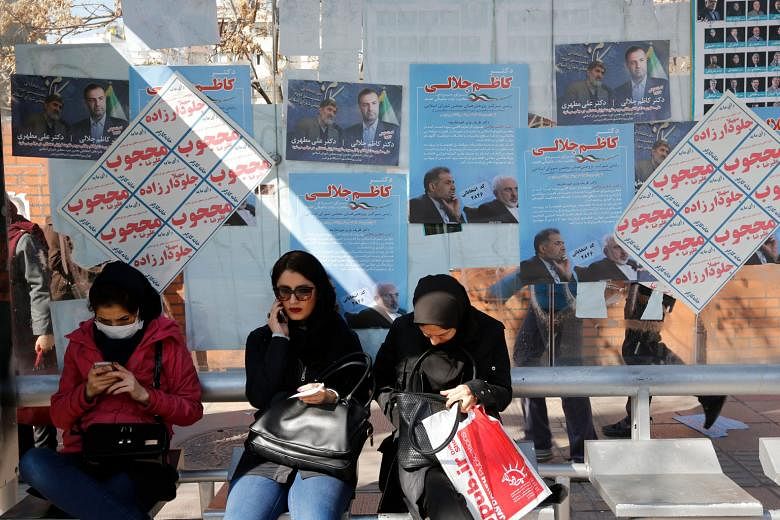TEHERAN • Iranians began voting across the country yesterday in elections billed as vital to curbing conservative dominance in Parliament and speeding up domestic reforms after a nuclear deal with world powers.
Fifty-five million Iranians will vote for 290 new MPs and 88 members of the powerful Assembly of Experts - a body that has the power to appoint and dismiss the supreme leader, Iran's most powerful figure.
Supreme Leader Ayatollah Ali Khamenei called for a big turnout that would frustrate Teheran's adversaries, a remark reflecting the Islamic Republic's traditionally anti-Western policies. "I suggest our nation to cast their votes early... they should choose their candidates wisely... a big turnout will disappoint Iran's enemies," Mr Khamenei said after casting his ballot in Teheran.
The vote, Iran's first since last year's nuclear deal with world powers, could determine whether the Islamic Republic continues to emerge from diplomatic and economic isolation after years of sanctions.
Both the Majlis - Parliament - and the Assembly of Experts are currently in the hands of hardliners.
Supporters of pragmatist President Hassan Rouhani, who championed the nuclear deal and is likely to seek a second presidential term next year, are pitted against conservatives deeply opposed to detente with Western powers.
Both sides have called for a strong turnout.
-
What's at stake
-
Fifty-five million voters are eligible to cast ballots that will ultimately elect 290 lawmakers.
They will also vote in a second election to select the Assembly of Experts, a powerful committee of 88 clerics that monitors the work of supreme leader Ayatollah Ali Khamenei.
While MPs are elected for four years, the assembly will be granted an eight-year term. Should Mr Khamenei, who is 76, die during that time, its members will pick his successor.
Most reformist candidates have been barred by a hardline clerical vetting body, the Guardian Council, along with many moderates, but their supporters have called on voters to back Mr Rouhani's allies and keep the conservatives out.
Results are hard to predict, with conservatives traditionally doing well in rural areas and young urbanites favouring more reformist candidates.
During the eight-year term of the Assembly of Experts, it could name the successor to Ayatollah Khamenei, who is 76 and has been in power since 1989. If it is called upon to choose a successor to Mr Khamenei, its decision could set the Islamic Republic's course for years or even decades to come.
Mistrust of the West runs deep, and hardliners have sought to undermine Mr Rouhani's allies by accusing them of links to Western powers.
A more supportive Parliament would allow Mr Rouhani to continue his economic reforms at home and diplomatic engagement abroad, and perhaps begin to chip away at social restrictions that irk a large segment of Iran's young, educated population.
Whatever the outcome, though, Iran's political system places significant power in the hands of the conservative establishment, including the Guardian Council, the Islamic judiciary and the Supreme Leader.
The 12-member Guardian Council must approve all new laws and vet all electoral candidates. It has already played a role in yesterday's vote by excluding thousands of candidates.
Nevertheless, prominent reformists and moderates have scrabbled together a joint list of candidates in Teheran - 30 for Parliament, and 16 for the Assembly of Experts - and hope this can propel them to an overall majority in both bodies.
"Our speculation is that the extremists or principlists won't have the majority in the Parliament and the general atmosphere of the Majlis will be changed," said Mr Mohammad Reza Aref, a reformist former vice-president standing for Parliament.
Polling booths were due to close at 12.30am today ( Singapore time).
REUTERS, AGENCE FRANCE-PRESSE

